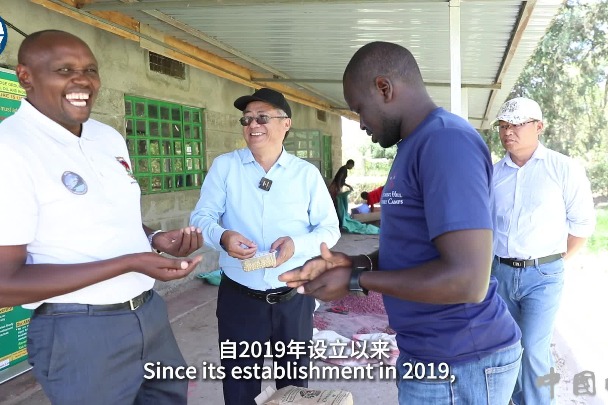China-funded road connecting Cambodia's capital to coastal province inaugurated

TAKEO -- Cambodia on Wednesday inaugurated the China-funded expanded National Road No. 3 which links the capital Phnom Penh and the southwestern coastal province of Kampot.
The 134.8-km expanded road starting from Chom Chao roundabout in Phnom Penh's western suburb runs through Kandal, Kampong Speu and Takeo provinces.
Cambodian Prime Minister Samdech Techo Hun Sen and Chinese Ambassador to Cambodia Wang Wentian both addressed the inauguration ceremony, which was attended by nearly 1,000 people.
Hun Sen said the road is crucial to boosting economic and tourism development and that Kampot is the only province that produces salt for the kingdom.
"This is another testament to the fruitful cooperation between Cambodia and China under the frameworks of the comprehensive strategic partnership, the ironclad friendship, and the community with a shared future between the two countries," he added.
"I hope that our people will benefit from this road," he said.
The road was built by the China Road and Bridge Corporation (CRBC) at a cost of about 215 million U.S. dollars, and the project, which began in October 2018, was funded by the Chinese government.
Hun Sen praised the Chinese contractor for completing the project earlier than scheduled and thanked it for building the road in full compliance with technical standards.
"Through Chinese Ambassador to Cambodia Wang Wentian, I'd like to send my profound gratitude to the government and people of China for always financing key road and bridge projects in Cambodia, which are the key elements for socio-economic development," he said.
Wang said National Road No. 3 is a key transportation artery for Cambodia, and expressed the belief that it will play a crucial role in boosting economy and tourism as well as improving the livelihoods of people along the route.
Its opening to traffic truly reflects the strong momentum and fruitful results of the China-Cambodia pragmatic cooperation, he said.
Although the COVID-19 pandemic has affected the flows of people and goods, some major projects of bilateral cooperation have withstood the pressure from the pandemic and have been successfully completed on time and with high quality, he added.
"This not only reflects the resilience of the China-Cambodia mutually beneficial cooperation, but also shows strong vitality of the China- Cambodia community with a shared future," Wang said.
Local residents expressed their satisfaction with the national road. "Undoubtedly, this road will facilitate travel, transport of agricultural produce and other goods, and attract more tourists and investors to this coastal province," Thun Sokleng, a 43-year-old farmer in Kampong Speu province, told Xinhua.
"This road will reduce travel time and logistical costs, and that's good for doing businesses. I believe that this road will contribute to improving living conditions of the people in the areas along it," she said.
Another Kampong Speu resident, Tes Sarin, 68, said he is grateful to China for having provided a lot of assistance to Cambodia for the development in all sectors, especially in the infrastructure, with many roads and bridges built.
"We hope more Chinese tourists will come to Cambodia after COVID-19 is over," he added.
- News
- China launches international cooperation initiative in open science with Brazil, South Africa, African Union
- China to send 1,500 packs of sports equipment to several BRI countries
- China's agricultural innovation helps African farmers increase yield, income
- Chinese medical team in Namibia promotes child health on World Children's Day




